AC off due to high engine temperature – causes and fixes
Learn the critical actions to take when your AC shuts down due to elevated engine temperature.
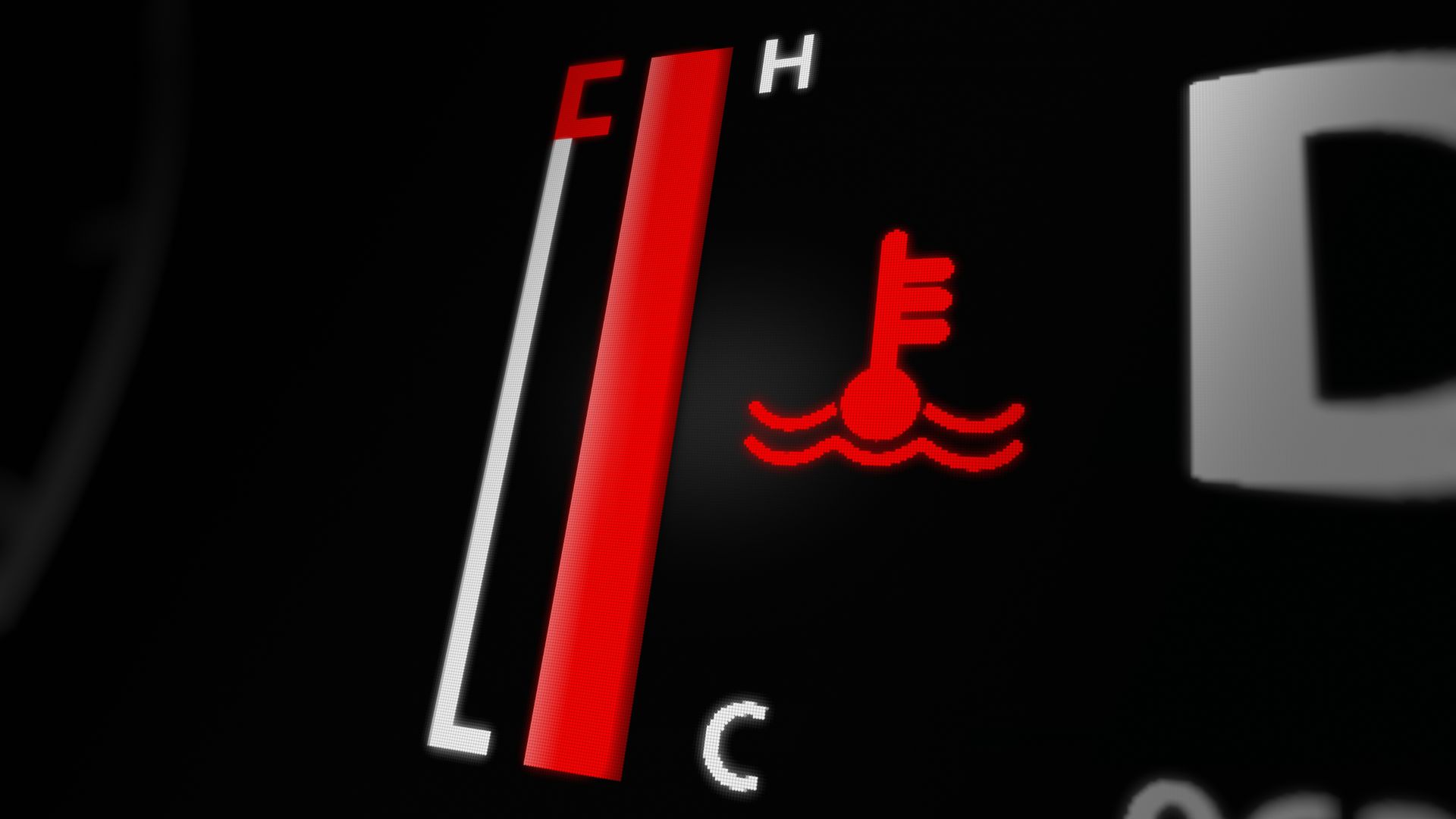
Did you get a notification on your dashboard that says “AC off due to high engine temperature“? If yes, then you’re probably wondering what it means and how serious it is. Sometimes, when you turn on the engine, you only get hot air from the vents.
Well, the leading cause of this problem is an overheated car engine. Certain factors can overheat your engine and trigger AC off due to high engine temperature. The engine is the heart of a car, and systems are programmed to protect it. These systems will do anything to reduce the burden of overheating, including turning off the AC.
An overheated engine is a serious case and can be detrimental to your vehicle. If your engine is constantly overheated, it can lead to a blown head gasket and busted hoses. Stay with us as we’ll explain what causes the AC to go off due to high engine temperature and what it means. We’ll also talk about how to fix the problem.
What does AC off due to high engine temperature mean?
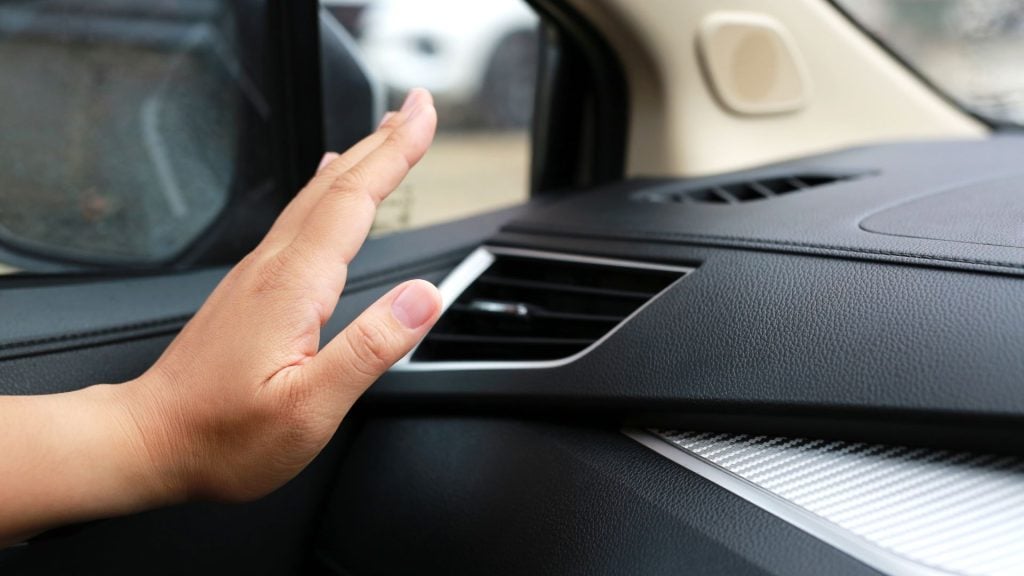
If you get a notification about your AC going off due to high engine temperature, your engine is overheated. The engine computer turns the AC off to reduce pressure on the engine.
Apart from overheating, your AC going off could also mean that you have an overcooling issue. If your air vents are clogged, it can cause overcooling. With overcooling, your car’s engine temperature can increase beyond normal.
An engine’s primary purpose is to convert fuel into motion and power some of the car’s systems. These systems also include the AC. The exact amount of energy the AC draws from the engine isn’t specified, but it can affect the engine’s performance.
On a large scale, the amount of power the AC consumes depends on the car’s brand and model. From observations, the AC system reduces your car’s power once turned on, especially if it’s a big engine.
When the car’s engine computer turns off the AC because of an overheated engine, you’ll notice that the engine temperature gauge keeps fluctuating. You can locate the engine temperature gauge in the driver’s cluster. However, many modern car models have warning lights instead of gauges.
What causes AC off due to high engine temperature?
Earlier, we mentioned how an overheated engine is responsible for AC off due to high engine temperature. However, some failures in a car can cause the engine to overheat. One thing about cars is that the different systems are interconnected, and if a component related to the engine fails, it affects the motor.
The AC system connects to the engine, so if the engine overheats, the AC is affected. Some typical faults can make the engine overheat and then trigger AC off due to high engine temperature. These faults and failures include;
Worn-out thermostat
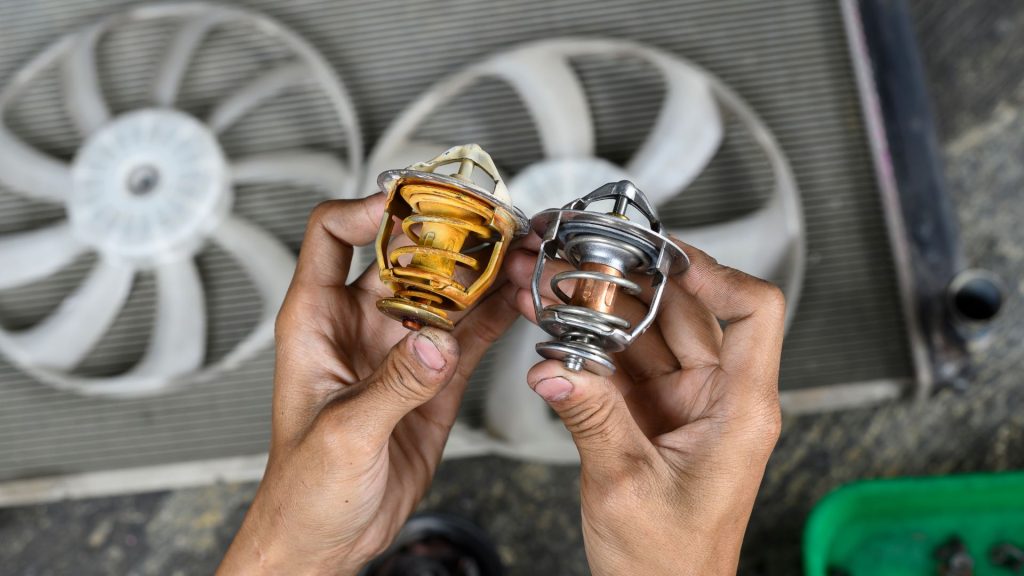
To properly appreciate the thermostat, you have to understand its working mechanism. Vehicles have a cooling system, and the radiator is an integral part. Even while knowing the basics, many drivers still wonder about the role of a thermostat in a car.
You can find the thermostat positioned between the engine and the radiator, and its principal function is to control the engine’s operating temperature. In essence, the thermostat protects the engine from overheating and overcooling. Without the thermostat, the entire cooling system goes down.
The thermostat controls the engine’s temperature by preventing coolant from reaching the engine until the engine is properly warmed. The thermostat only opens its valve when the engine reaches operating temperature.
When the thermostat wears out and becomes faulty, it fails to control the engine’s temperature. As a result, the machine starts overheating.
Faulty temperature sensors
In most cases, faulty temperature sensors are responsible for the ‘AC off due to high engine temperature’ notification. Temperature sensors measure the temperature of car fluids for the engine control module.
If you’re dealing with an overheated engine, the problem could be either the coolant temperature sensor or the water inlet temperature sensor. Once you find out which one is the problem, you need to replace it.
The coolant temperature sensor controls the radiator fan, and if it’s faulty, the fan won’t work. Once your electrical cooling fan stops working, your car engine is in danger of getting overheated.
Some symptoms of a faulty temperature sensor include an overheated engine, a ‘check engine light’ notification appearing on the dashboard, and black exhaust smoke.
Corroded temperature-sensing circuits connection
Apart from the actual sensors, your car’s temperature-sensing circuit connections can cause problems. If the circuit connections are corroded, loose, or worn out, they can affect the temperature reading. Basically, they can make your temperature sensors malfunction.
Over time, connection points under the hood get clogged with grime build-up and oil residue. The oil residue comes from leaks, so you might want to check around. Tangled and loose electrical wiring can also hamper the temperature sensors.
Depending on the car model, connection points can be too close to fluids. For example, the Chevrolet Cruze has a connection point close to the return line. The return line in question connects to the reservoir. In addition to that, the return line’s fitting is weak, and it gets broken easily.
Whenever the fitting breaks, it leaks lots of coolant fluid. Now, remember that the return line is close to a connection point. As coolant leaks, it eventually gets into the connection point and damages it.
With cars, any damage can cause a ripple effect. If your temperature-sensing circuits or connection points fail, the failure affects your temperature sensors. Then, the sensors, in turn, affect your car’s engine and cause overheating.
Other things like low coolant level, a blown gasket head, and a failed AC compressor can cause the engine to overheat.
Can I drive my car if it says “engine hot AC off”?
No, you shouldn’t drive your car if it says “engine hot AC off.” The warning means that your engine is overheated, and if you keep moving, you can cause extensive damage to your car. In dire situations, it can lead to an accident.
What to do when I get the “engine hot AC off” signal
If you get the “engine hot AC off” warning while driving, find somewhere to park and stop the car. Allow the vehicle to cool down for 20-25 minutes. Even after these minutes, the car fluids will still be hot, so be careful.
Next, open the hood and check the engine. If you don’t know what to do, you can contact the mechanic for professional help.
How do you fix high engine temperature?
The first step to fixing a problem is to find out what exactly the cause is. We’ve already talked about the cause of high engine temperature, and there are many causes. You’ll have to check for the common problems that cause overheating. If you want to diagnose the car yourself, it might not be easy, but we’ll talk you through the entire troubleshooting process.
Check for coolant shortage
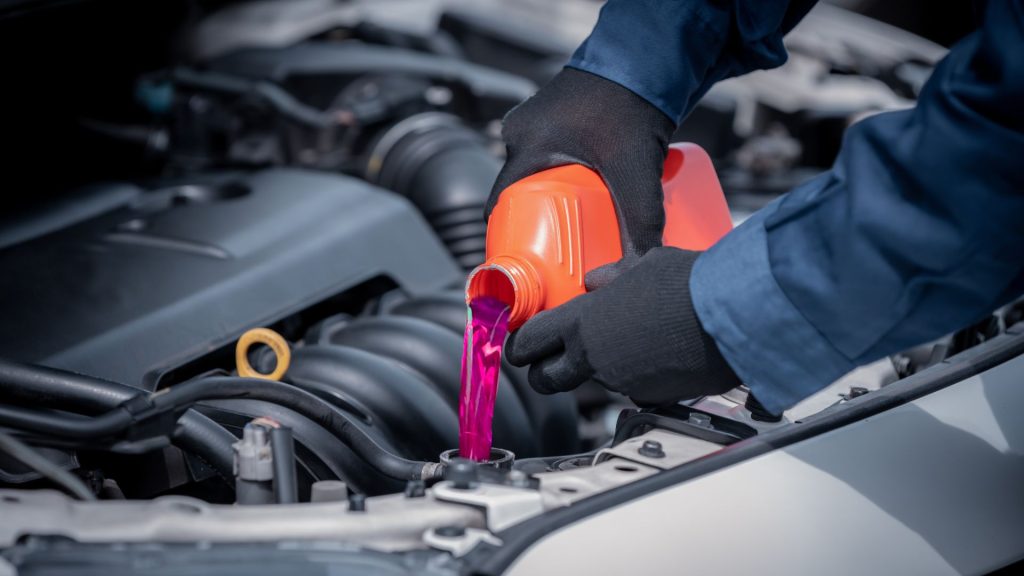
Firstly, open the car hood and check if you have enough coolant. Don’t do this when the car is hot; else, the coolant can spill and burn your skin. If there isn’t enough coolant, that might be your issue.
However, if coolant shortage is not the problem, you can start checking for coolant leaks. You aim to find the exact leaking site. If the car is still warm, check under the car for wet spots that indicate leakage. Also, check the rubber coolant lines, the upper and lower radiator hoses, the water pump, and the thermostat housing.
Coolant leaks are common in the area where rubber and aluminum parts of the radiator meet. You won’t find wet leakage spots if the car is cold. When the vehicle is out, the coolant leak presents as a chalky mark.
If you’re having difficulty catching leak signs, warm the car up for some time and check when it cools down. Ensure you have enough coolant fluid; otherwise, you won’t see anything.
Check the cooling fans
The fans are the second most common cause of engine overheating, apart from electrical issues. Your car has two fans; the direct drive fan and the electrical fan. The motor fan connects to the motor and should be on whenever the vehicle is on. On the other hand, the electrical only comes on at certain times.
While the car is off, use your hands to rotate the fans manually. Make sure nothing is hampering their movement. Next, start your vehicle and check if your direct drive fan is spinning. Turn on your AC and check if the electrical fan is also rotating.
Check the wires connected to the fans and ensure they’re not broken, melted, or corroded. If everything is fine, your cooling fans are not the cause of overheating.
Inspect the thermostat
You can locate the thermostat between the radiator and the engine. In most cars, you’d find it in a thermostat housing. A simple way of testing if your thermostat is functioning is by putting it in hot boiling water.
If the thermostat opens and closes as it should, then it’s good. However, you can replace the thermostat since thermostats are not expensive.
Check the water pump
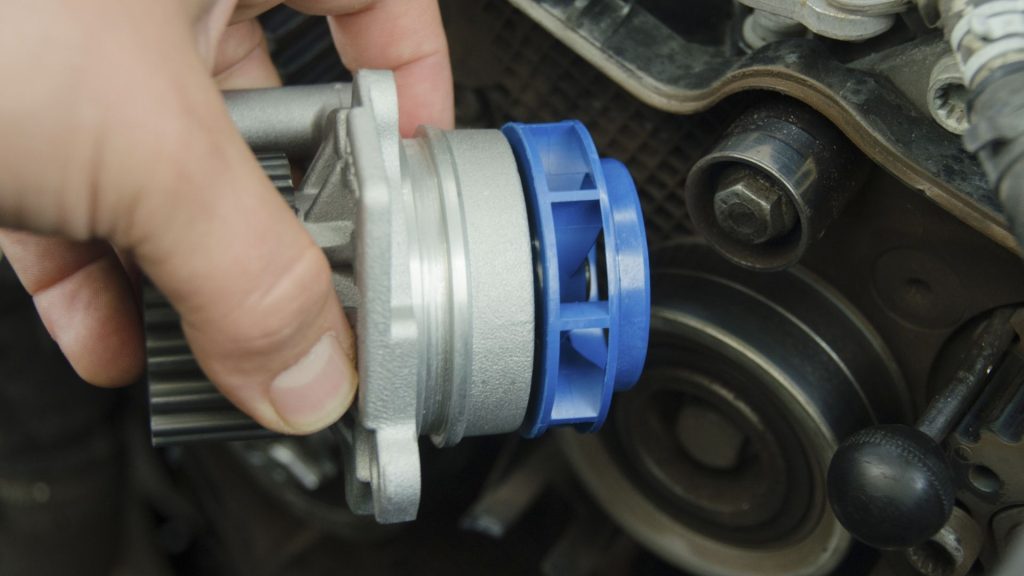
Another part you should check is the water pump. Make sure the pump belt is intact and not loose. Then, start the car and observe if it’s running smoothly.
To be sure, you can replace your temperature sensors. They’re not expensive, but ensure you insert suitable sensors in the right places.
Our take
If you get the “AC off due to high engine temperature” warning, your engine is most likely overheated. Different factors, like a worn-out thermostat and bad temperature sensors, can cause engine overheating. You can’t keep driving the car because it’s unsafe. It is advisable to call a professional to handle the situation, but if you choose to do it on your own, you can follow the steps listed above.